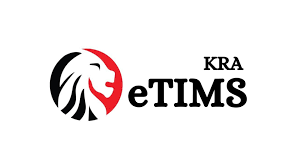In the ever-evolving realm of Kenyan business, optimizing tax efficiency stands as a critical factor for sustained growth and financial prosperity. Although maneuvering through the intricate maze of tax regulations can be daunting, businesses that prioritize strategic tax planning can uncover substantial savings and fortify their financial foundation. This blog post aims to offer a comprehensive guide on maximizing tax efficiency for Kenyan businesses, encompassing essential strategies and considerations.
Understanding Kenya’s Tax Landscape Before delving into tax efficiency strategies, it is imperative to establish a robust comprehension of the Kenyan tax system. Kenya levies various taxes, including corporate income tax, value-added tax (VAT), excise duty, and more. Businesses must stay abreast of changes in tax laws and regulations to ensure compliance and pinpoint optimization opportunities.
Effective Tax Planning
The linchpin of maximizing tax efficiency for Kenyan businesses lies in effective tax planning. This entails strategically organizing financial activities to minimize tax liability while upholding legal compliance. Businesses should scrutinize their financial structure, income streams, and expenses to identify optimization opportunities. Leveraging government-provided deductions, allowances, and incentives can substantially alleviate the overall tax burden.
Leveraging Investment Incentives
Kenya extends various investment incentives to spur economic growth. Businesses operating in specific sectors or regions may qualify for tax holidays, reduced tax rates, or investment allowances. Grasping and capitalizing on these incentives can result in significant tax savings. Staying informed about government policies and engaging with relevant authorities are crucial for businesses to avail themselves of available incentives.
Proper Record Keeping
Accurate and organized record-keeping is fundamental for tax efficiency. Maintaining detailed financial records ensures businesses can easily substantiate their income, expenses, and deductions during tax audits. Additionally, proper record-keeping facilitates the timely filing of tax returns, helping businesses avoid penalties and interest charges.
VAT Compliance and Refunds
Value-added tax (VAT) is a significant facet of the Kenyan tax system. Businesses should meticulously manage their VAT obligations, including accurate invoicing and filing of VAT returns. Moreover, businesses engaged in export or providing zero-rated services may be eligible for VAT refunds. Ensuring compliance with VAT regulations and pursuing eligible refunds can contribute to improved cash flow and reduced tax liability.
Employee Benefits and Tax Optimization
Kenyan businesses can boost tax efficiency by strategically structuring employee benefits. Offering tax-efficient benefits, such as medical insurance, retirement contributions, and training expenses, can reduce taxable income for both the business and its employees. This not only enhances employee satisfaction but also contributes to overall tax savings.
Transfer Pricing Compliance
For businesses involved in cross-border transactions, adherence to transfer pricing regulations is imperative. Compliance with transfer pricing rules, involving setting prices for transactions between affiliated entities, helps businesses avoid penalties and audits while optimizing tax liability. Seeking professional advice and conducting regular transfer pricing assessments can aid in maintaining compliance and maximizing tax efficiency.
Conclusion
Maximizing tax efficiency is an ongoing process necessitating careful planning, compliance, and adaptability to changing regulations. Kenyan businesses proactively managing their tax affairs position themselves for long-term success and growth. By leveraging investment incentives, implementing effective tax planning strategies, maintaining proper record-keeping, and optimizing employee benefits, businesses can navigate the complexities of the Kenyan tax landscape while unlocking substantial tax savings. Staying informed about legislative changes and seeking professional advice are essential components of a holistic approach to tax efficiency, emerging as key drivers for sustainable success in the Kenyan business environment.














